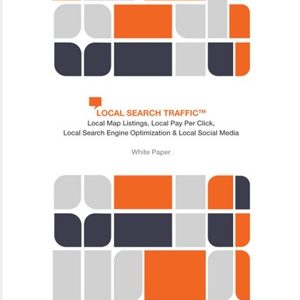
Helping Small Businesses During the COVID-19 Pandemic
Since COVID-19 has become a full-blown pandemic, unemployment rates have skyrocketed as businesses are forced to close their doors for public health.
This is undoubtedly a stressful time, especially for small business owners who have significantly fewer resources to sustain themselves.
If you’ve checked your email recently, you’ve likely seen numerous businesses sending out notifications to consumers, explaining how they are trying to help.
It’s heartening to see individuals and organizations coming together to offer assistance to those in need.
If you would like to join the ranks of the helpful, here are 17 ways to help small businesses impacted by COVID-19.
1. Volunteer On Behalf of Your Company
If you are not a member of the at-risk community, consider doing hands-on volunteering on behalf of your company. Meals on Wheels expects an increase in demand for their meal delivery services and is actively seeking volunteers.
You can also help at-risk individuals in your neighborhood with tasks like shopping or picking up prescriptions. Post on a community Facebook group or put a notice in your apartment building’s lobby.
If you’re indoors but have a sewing machine, you can join others in making homemade non-medical masks. These masks are easy to make and are requested by hospitals to help extend the life of their N95 masks, which are in short supply.
2. Take to Social Media & Amplify Messages
Instead of listlessly scrolling through social media, make an effort to follow and share posts from companies you want to support. Create a Twitter list to maintain this effort. Amplify small businesses’ messages with minimal effort, providing them the most valuable advertising – word-of-mouth.
3. Choose Credits Over Refunds
If COVID-19 prevents a company from delivering a product or service you ordered, choose a credit rather than a refund whenever possible. This could be the difference between a business making rent this month or not.
4. Order (More) Takeout & Delivery
While quarantine may give you time to cook, remember your favorite restaurants’ dire situations. With dine-in options restricted, takeout and delivery have become many restaurants’ primary income source. Order online and keep drivers employed, and ensure you’re tipping well.
5. Buy Credits or Gift Certificates to Use Later
If you can’t frequent a business now, buy credits or gift certificates to use later. This cash flow will mean a lot now when incomes are lean, and you can use your purchases when it’s safe.
6. Use Your Expertise to Help Struggling Businesses
Consider using your skills to build an ecommerce website for a brick-and-mortar business or offer strategic advice to help small businesses navigate economic upheaval. You can also put together webinars filled with helpful content or offer personalized advice through simple video messages.
7. Organize Your Expert Friends to Share Knowledge
If you’re well-connected in your industry, organize a virtual summit. Gather experts and offer free access for a limited time, charging a small fee for continued access to help recoup costs.
8. Offer Free Office Hours
If your business helps other businesses, offer free consultations to small businesses impacted by COVID-19. Use your expertise to provide valuable advice on generating leads, marketing, or other relevant areas.
9. Advertise Free Offers From SaaS Companies
Many SaaS companies are offering incentives to mitigate COVID-19’s impacts. Share these offers with small business owners who could benefit. This is beneficial for both the SaaS company and the business owner.
10. Provide Free Access to Your Service or Platform for Specific Groups
If your company can support some unpaid users, offer free services to specific groups like medical professionals or educators. Many large companies are already doing this.
11. Research & Recommend Funding Options
Research available resources for small businesses hit hard by COVID-19. Share relevant options with small businesses you care about, and offer help with loan applications if you have experience in this area.
12. Extend Payment Terms
If you can offer loans or have customers on payment plans, extend payment terms to alleviate their cash flow issues. Temporarily change net-30 terms to net-60 or more.
13. Shorten Payment Terms
If you owe money to a small business, consider paying them sooner. Good cash flow is more crucial than ever for small businesses.
14. Create a Coronavirus Resource Center
Small businesses should efficiently communicate with customers by creating a website page with updates on business details and helpful resources. Ensure it’s easy to find and focused on being helpful.
15. Encourage Your Employees to Buy from Small Businesses
If your business is operational, encourage employees to support local small businesses. Set up programs to reimburse purchases or reward employees for supporting local, independent businesses.
16. Adjust Your Methods of Support
Instead of shopping in-store, contact local businesses online or by phone for delivery or curbside pick-up. Think of local businesses before opting for convenience from large corporations.
17. Set up a Cash Fund or Grant
With millions of jobs at risk due to COVID-19, consider setting up a fund to help affected businesses and employees. If setting up a large fund isn’t possible, donate a portion of proceeds from sales to relevant relief organizations.
Final Thoughts: 17 Ways to Help Small Businesses Impacted by COVID-19
COVID-19’s reach is vast and its economic impact dire. Small businesses are hurting the most. As a community, we should do whatever we can to support our neighbors, whether through monetary support, volunteering, or simply ordering from local establishments. Together, we can keep our bodies and our businesses healthy.
More Resources:
- How SEO Professionals Can Thrive in a Slow Economy
- Winter Is Coming: SEO During Economic Downturns
- The Power of Perseverance: Overcoming Big Hurdles in Business & Life
Image Credits:
Featured Image: cottonbro / Pexels



